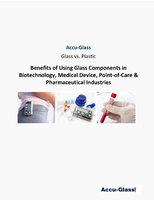Additive Manufacturing gets a universal language.
Press Release Summary:
In effort to eliminate confusion over terminology, design, testing methods, materials, and processing differences, SME's Rapid Technologies and Additive Manufacturing community approached ASTM to develop standards. Result is the publication, "Standard Terminology for Additive Manufacturing Technologies," which will allow manufacturers to compare and contrast performance of different additive processes and enable researchers and process developers to provide repeatable results.
Original Press Release:
Additive Manufacturing Gets a "Universal Language"
First Industry Standards Developed by SME and ASTM Are Now Available
DEARBORN, Mich., - It's been called rapid technology, rapid prototyping, and layered manufacturing, but additive manufacturing now has a universal name and a universal language, thanks to a collaboration between the Society of Manufacturing Engineers and ASTM International.
"Rapid prototyping has meant different things to different manufacturers. It means quick prototyping to one and layered manufacturing to another. Now it's called additive manufacturing," explains Brent Stucker, PhD, a member of SME's Rapid Technologies and Additive Manufacturing (RTAM) Community and an associate professor of mechanical and aerospace engineering at Utah State University.
In an effort to eliminate the confusion over terminology, design, testing methods, materials and processing differences, SME's RTAM community approached ASTM to develop the industry's first-ever standards.
ASTM, in turn, formed the Committee F42 on Additive Manufacturing, including members of the RTAM community, to write new standards. The initial result is the publication, "Standard Terminology for Additive Manufacturing Technologies," now available for purchase online. Prior to this publication, the lack of consensus within the additive manufacturing community often boiled down to something as basic as the name of the industry itself.
Stucker, who is also the chairman of Committee F42 says that terminology standards "will help clarify communications" especially in industries like medical manufacturing and aerospace where consistency is a must.
And according to ASTM, these new standards will "allow manufacturers to compare and contrast the performance of different additive processes" and "enable researchers and process developers to provide repeatable results."
In addition to terminology, Committee F42 will also develop other key industry standards. "Test methods will more than likely be our next effort, but additive manufacturing industry design, materials, and processes are also in the works and will be developed in parallel," says Stucker. He also adds that ASTM's Committee F42 is looking for additional members to help draft these standards. "We're happy to draw expertise from anywhere in the world," he says.
For more information about participating in RTAM, visit www.sme.org/rtam. Or, for more information about the Committee F42 on Additive Manufacturing, contact Pat Picariello at ppicarie@astm.org or at 610.832.9720.
To purchase a copy of this new standard and to support SME's work on developing them, visit the SME Online Store, click on the ASTM button and type "additive manufacturing" in the search field to locate F 2792-09.
About SME:
The Society of Manufacturing Engineers (SME) is the premier source for manufacturing knowledge, education and networking.Through its many programs, events and activities, SME connects manufacturing practitioners to each other, to the latest technology and the most up-to-date processes spanning all manufacturing industries and disciplines, plus the key areas of aerospace and defense, medical device, motor vehicles, including motorsports, and oil and gas. A 501(c)3 organization, SME has members in more than 70 countries and is supported by a network of technical communities and chapters worldwide.
About ASTM International:
Established in 1898, ASTM International is one of the largest international standards development and delivery systems in the world. ASTM International meets the World Trade Organization (WTO) principles for development of international standards: coherence, consensus, development dimension, effectiveness, impartiality, openness, relevance and transparency. ASTM standards are accepted and used in research and development, product testing, quality systems and commercial transactions around the globe.




